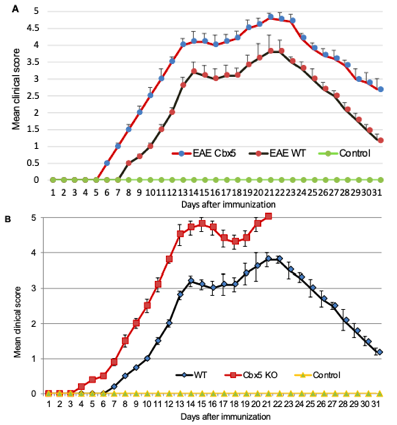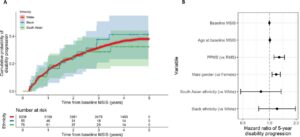
“Defective Integrator activity shapes the transcriptome of patients with multiple sclerosis.”
Yevhenia Porozhan, et al. – Sorbonne Universités.
Background: The mechanisms leading to overactive immune responses in MS remain largely unknown.
This Study: Deep sequencing of monocyte RNA from patients at various points along the MS continuum, along with controls, revealed that patients fell into two groups. One group, marked by high levels of the transcriptional repressor CBX5 and largely with clinically/radiologically isolated syndrome, had minimal transcriptomic changes beyond downregulation of select vitamin D-regulated genes. The second, marked by low levels of CBX5 and an MS diagnosis, had widespread transcriptomic changes, including upregulation of numerous pro-inflammatory genes. Low CBX5 levels were associated with impaired RNA transcription and processing due to lowered expression of the regulatory Integrator complex, with transcription favoring the 5’ end of genes and shorter genes. This is due to RNA Polymerase II beginning transcription prior to becoming fully competent and thus stalling out before reaching the 3’ end of the gene. Impaired Integrator activity also promoted the transcription of enhancer RNAs (eRNAs), normally destabilized by Integrator, which often continued into downstream sequences. These results could explain known transcriptional changes in MS such as upregulation of endogenous retroviruses (HERVs), which are often co-opted to serve as enhancers. Loss of Cbx5 exacerbated symptoms in an experimental autoimmune encephalitis (EAE) mouse model of MS, suggesting a role for reduced CBX5 levels in MS pathology.
Bottom Line: Reduced levels of CBX5 are associated with widespread changes to gene transcription in monocytes that may play a key role in driving autoimmune responses in MS.




